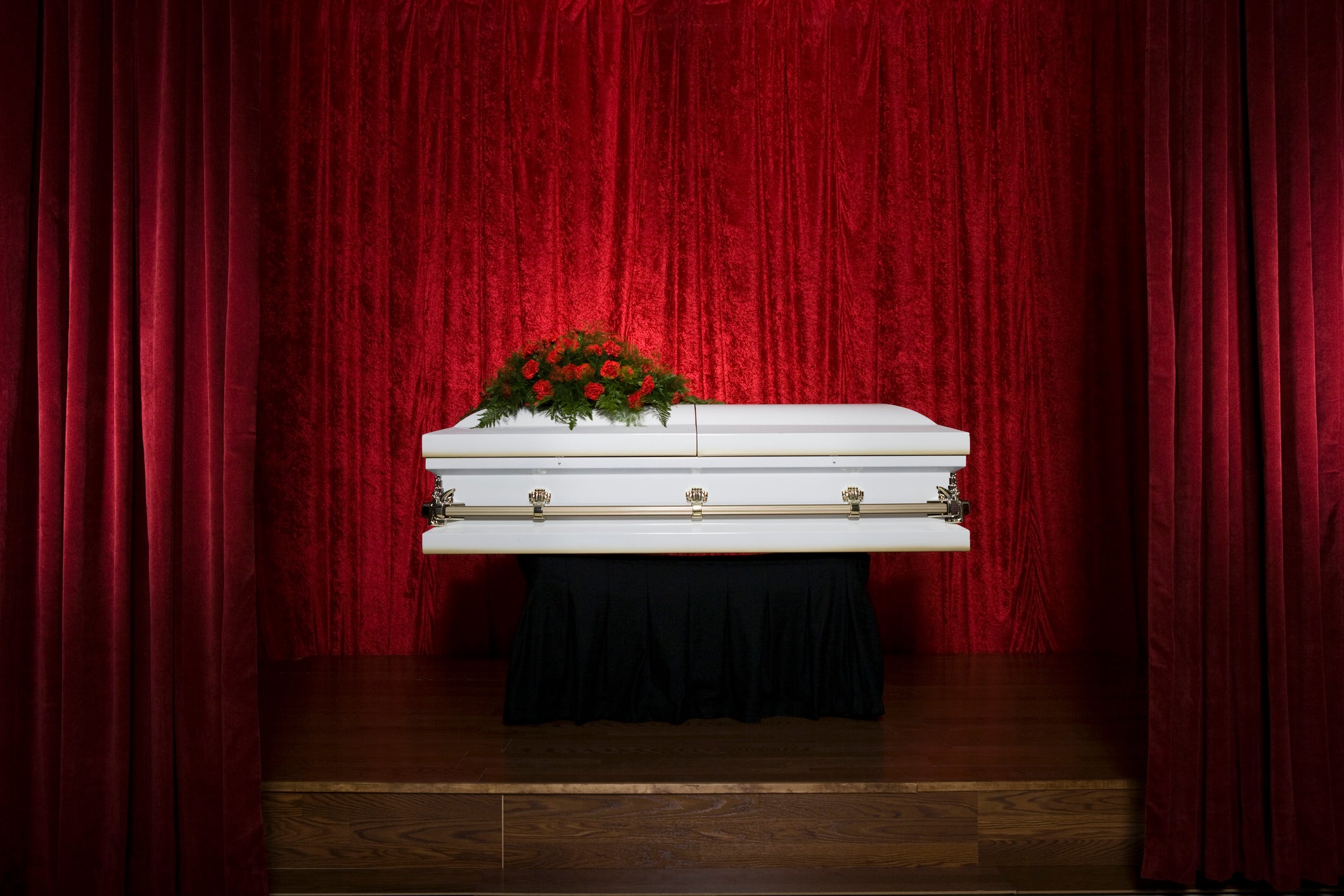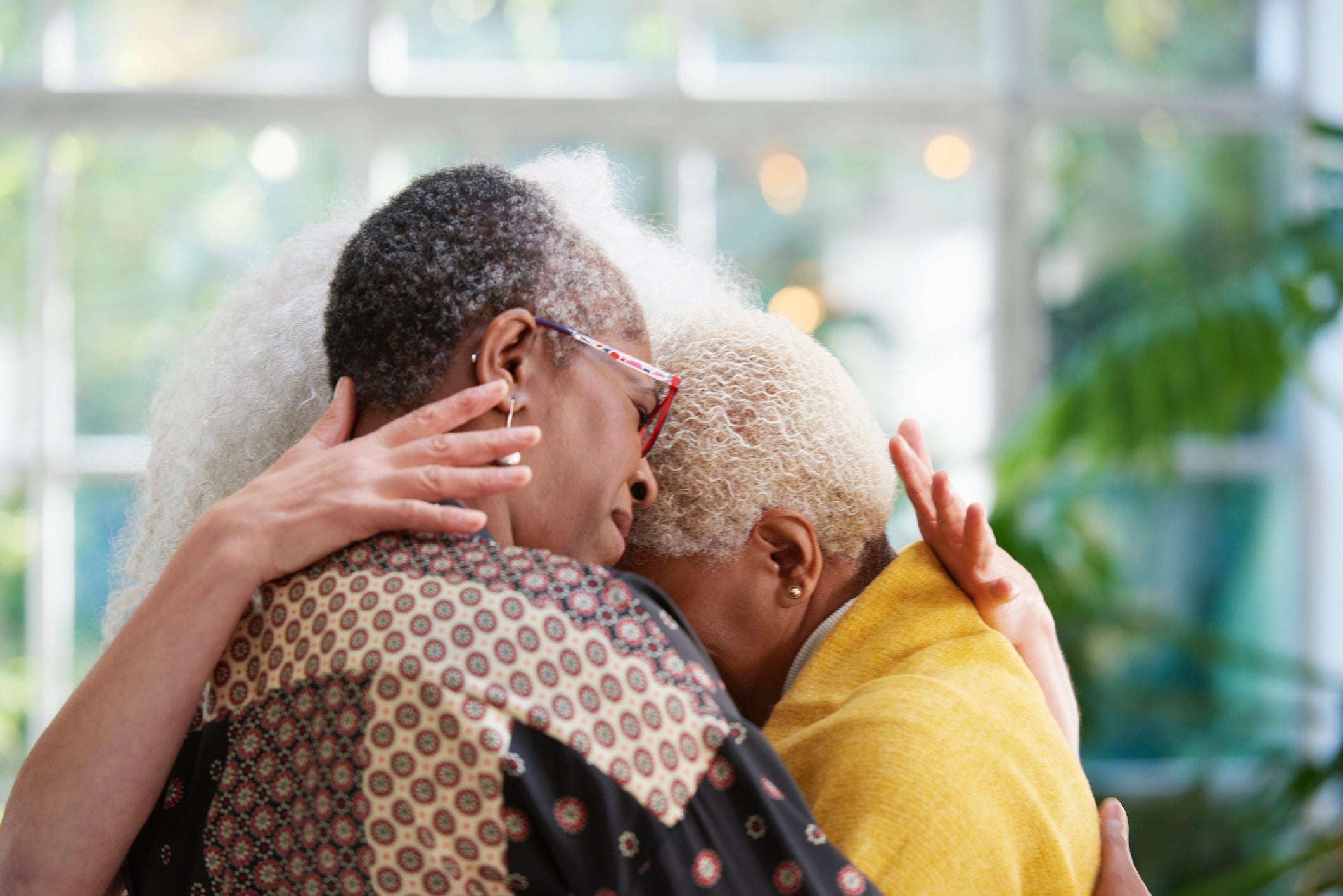
“We don’t honor our father by sitting friends and family outside at fancy tables. We don’t honor our father by having strangers serve those grieving. We serve comfort food to those who need comfort. And we do it with our own hands.
– Nova Bordelon, Queen Sugar
At every funeral service, we served the deceased’s favorite foods. It was our way of honoring their memory and served as a reminder to all who grieved that they would continue to be remembered. We’d sit at long, crowded tables, sometimes outside, sometimes in the top room of the church and share stories.
We released doves, danced, lit incense, played music, held vigils, and sometimes spread their ashes across the sea. We carried the grief, while the pallbearers carried the body, ushering us in to begin. We put love notes, flowers, prayers, and herbs in the coffin to keep the dead company after they were put in the ground. We planted kisses on foreheads, held elders and widowers up when they could no longer stand.
With stay at home orders instituted all over the United States, as COVID-19 continues to leave devastation in its wake, the uncertainty of when or whether things will return to “normal” grows. But for those of us who are grieving family members, teachers, partners, and friends, that uncertainty isn’t just about when we can resume our lives. It’s also about how our collective grieving processes and practices have been fundamentally changed.
On March 17th, 2020, the CDC urged funeral directors to limit visits and attendees at their sites in accordance with new gathering restrictions set to combat the novel coronavirus. They suggested directors and their staff offer to livestream homegoing services instead, Newsweek reports. One funeral director in particular waived his livestream fee of $75 and is now offering the viewing for free.

Most funeral companies have a limit of ten people for in-person services and once that number is reached, no other individuals can visit the body or sit inside. Gathering limitations have also increased the regularity in which families seek out cremation services. For services that have been held in church, attendees are encouraged to keep their hands to themselves and maintain at least a six feet distance—all outlined with tape on the church floors, to neither offer nor accept hugs, and use hand sanitizer to reduce the spread of transmission.
When Philly based writer Briyana Clarel lost their grandmother last month, they were concerned about traveling an hour away to New Jersey to say their goodbyes. The state of New Jersey had just declared a curfew a week earlier and Clarel expected the bridge to be closed. Though Clarel was able to visit their grandmother before she passed, their brother, who lives in San Francisco was not.
Clarel and several of their family members were under the assumption that they would be able to have their grandmother’s services in a church, but they didn’t get that opportunity. For ten minutes, Clarel and their family members were able to say their final goodbyes before being ushered out of the funeral home ten minutes later to follow CDC guidelines.
“Part of not having the funeral means it’s harder to not immediately have support. Friends and family can’t travel and be there for you. Over a week after my grandmother passed, I felt like I had to make a Facebook post about it, and I didn’t really know how to go about it,” Clarel tells ESSENCE.
Mourning In The Time Of COVID-19
Our grief is made bearable when we have the ability to gather, comfort and celebrate the lives of the folks we’ve lost. It’s a ritual, ancient tradition and way of seeing, honoring and supporting each other. But when we don’t have that, everything feels lonelier, less possible, more depressing. Mourners are now met with the challenge of honoring their loved ones remotely until previous guidelines are restored.
Before my cousin passed away last month, after her third and last battle with cancer, I wanted to fly there to be with her. I wanted to offer what comfort I could to her and her children. I wanted to ensure that she’d have the smoothest journey to the other side. But with the stay at home order from California governor Gavin Newsom—and the fact that I could be an asymptomatic carrier of COVID-19—I couldn’t risk putting health care professionals, elder family members, and fellow travelers at risk. Everyday I wake up and ask myself if staying home was worth it.
Though the latest estimate for when we can gather to honor my cousin’s life is this summer, it’s becoming increasingly clear that we probably won’t be able to do so even then. After speaking with my uncle, it’s possible that we’ll only be able to gather a dozen loved ones in the fall and livestream the services for everyone who is unable to attend—and our situation is not unique.
Performance consultant Staci Jordan Shelton, recently lost her beloved friend Brittany to a tragic zip lining accident in Mexico. Friends and family members put together a GoFundMe to help with travel costs and are desperately trying to get Brittany’s body home to her mother in Cleveland, Ohio.
“It feels like our ability to grieve is being taken from us,” Shelton tells ESSENCE. “That’s a hard and sobering thing, to not be able to touch on the folks we love and those who’ve lost people. I don’t know what to do with that.”
In the midst of these new restrictions, opportunities to connect feel few and far between. But New Orleans band the Brass-a-Holics got together and recorded “I’ll Fly Away” as an offering to folks who are grieving and aren’t able to hold services. The song, which is traditionally played at Southern Baptist funerals, is an invitation for virtual remembrance. When I heard it, I cried, imagining myself near the water, surrounded by family and friends.
Though I don’t believe virtual memorials can substitute for in person ones, hopefully they will offer some hope and reprieve from the collective loneliness and isolation we currently feel while grieving.
—
ESSENCE is committed to bringing our audience the latest facts about COVID-19 (coronavirus). Our content team is closely monitoring the developing details surrounding the virus via official sources and health care experts, including the World Health Organization (WHO), the Centers for Disease Control and Prevention (CDC) and the Occupational Safety and Health Administration (OSHA). Please continue to refresh ESSENCE’s informational hub for updates on COVID-19, as well as for tips on taking care of yourselves, your families and your communities.